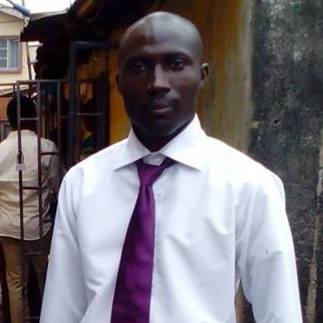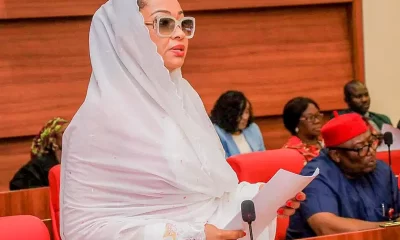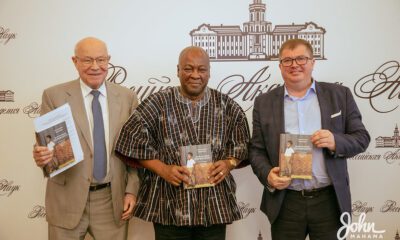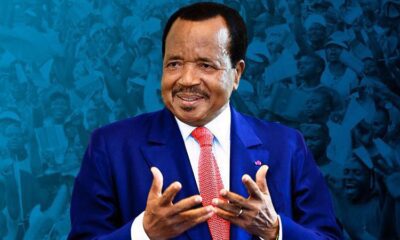National Issues
Perspectives on Leadership -By Olalekan Waheed Adigun

An adage says, “Show me your friend and I will tell you who you are.” This could be reframed as “Show me your leader and I will tell you what sort of follower you are.” This shows that leaders and followers co-create each other. There can be no leadership without followership and the reverse is also true. In the classic The Wretched of the Earth, the French-born Algerian statesman, Frantz Fanon argued that ultimately the people get the kind of leaders they deserve; and the leaders deserve the kind of followers they get. After all, a leader is anyone called to guide, teach, command, motivate, inspire or plan. By this, we all are leaders.
The National Association of Nigerian Students (NANS) had a glorious past in the 1970s and 80s due to its strong stance in the defence of the interests of students and the downtrodden in our society. But what went wrong? Today, it is difficult to distinguish NANS activities from motor park touts. The Nigerian Union of Journalists (NUJ) made this point early in 2014 when Delta State NANS Joint Campus Committee executives paid the Union a courtesy visit. So where are the future leaders?
Like NANS does, a university campus branch of the Non-Academic Staff Union of Universities and Other Educational Institutions (NASU) did something quite amusing. Its members’ monetised benefits were allegedly cornered by the Vice Chancellor, thus provoking the Union to embark on an indefinite strike. It is instructive to know that the Union leader, on been summarily promoted by the university management from level 4 to 7 suddenly abandoned the poor workers and mortgaged their futures for his personal gratification. Do we still have the moral authority to question our leaders when they collect huge World Bank/IMF loans and these never get home?
The Academic Staff Union of Universities (ASUU) embarked on industrial action in 2009. The Union accused the minister of Education, Dr. Sam Egwu of not heeding to the plight of the Union because his children, like those of other high ranking public officials, were attending foreign universities. Suffice to say that ASUU threatened to publish the names of the public officials having children in foreign Universities. The minister equally retorted that he had the names of the children of ASUU members studying abroad and threatened to publish these in response. We are yet to see any list from either side till date. I have cited these instances just to justify the assertion that leaders and followers are co-creators.
Dynamism is one of the hallmarks of leadership. If we continue to use the same old responses, worn-out theories, failed approaches instead of creating new ones, we honestly aren’t expecting things to change. I am sure no one recalls experiencing bomb blasts being a daily practice in Nigeria two decades ago. However, this is a reality we live with in Nigeria presently. But to respond with short-staffed, ill-equipped security agencies, as against fire-emitting Boko Haram terrorists, is – to say the least – crooked thinking.
Just as a confused leader cannot lead effectively, a divided, unfocused, disorganised and disoriented people cannot follow properly. The latter is usually taken advantage of by unscrupulous politicians for cheap political gains. So, leaders and followers are not independent of each other.
A leader must know which role to play each time. S/he must be able to discern the role s/he plays in every situation. At war time s/he is the Commander-in-Chief or Chief Security Officer; at peace time s/he is the Mother or Father of the Nation, shunning being partisan in any form; and during the period of division, s/he is the Uniting figure and so on. In Nigeria, it appears our leaders don’t know what role is expected of them in each situation. It is for this reason that they get poor advice from their advisors who are only bent on fanning their egos.
Great leaders spend their time understanding the needs of their people. While others are bothered about winning the next election, or preserving their party, or enhancing their ethnic groups, they do their best to satisfy their people. They are like marketers who are told to satisfy the needs of their customers, to guarantee their loyalty. It was this great truth that Franklin D. Roosevelt understood as US President during the Great Depression (1929-1933), when he chose to pitch his tent with the poor who were most affected during this period. For these acts, he was rewarded with great victories in four consecutive elections which are unprecedented and unsurpassed in US history. This was what led the great political leader and perhaps the most influential religious figure ever, Amenhotep IV, Pharaoh of Egypt (1360-1350BC) to say: “The glory of a King is the welfare of his people; his power and dominion resteth on the hearts of his subjects.” The greatest leaders have taken heed of this eternal truth.
Also, the greatest leaders are not those who lead from the mountains. They are those who pay attention to the deepest levels of human experience. They don’t position themselves as superhuman. In essence they are humble. It becomes very difficult to see situations clearly when one is surrounded by such luxury that Nigerian leaders are ensconced in. All these rather make them blind, hence they depend on second hand information from unreliable lieutenants.
Great leaders give everything in their service to the people. History is not in want of leaders whom gave their lives in the service of their people: Mahatma Gandhi (India), Abraham Lincoln (USA), John F. Kennedy (USA), Peatrice Lumumba (Congo), Malcom Little (Malcolm X, USA), Martin Luther King (USA), Ernesto “Che” Guevara (Argentina), Amilcar Cabral (Guinea-Bissau), Salvador Allende (Chile) and many others paid the ultimate price with their lives. Others have endured painful punishments and assaults: Nelson Mandela (South Africa), Denis Brutus (South African), Fidel Castro (Cuba), Juan Peron (Argentina). Others like Ahmed Ben Bella (Algeria) and Kwame Nkrumah (Ghana) were exiled from their countries due to the defence of their people.
We are indeed in a period of great triumphs and potential pitfalls. The world, Nigeria especially, is in dear need of elevating leadership and good followership. To make the difference, leaders must set the pace for the followers. The world is in desperate need of inspirational leaders, not necessarily politicians. That is why as young people we must set the pace. It never comes by asking, rather it comes by demanding this.










